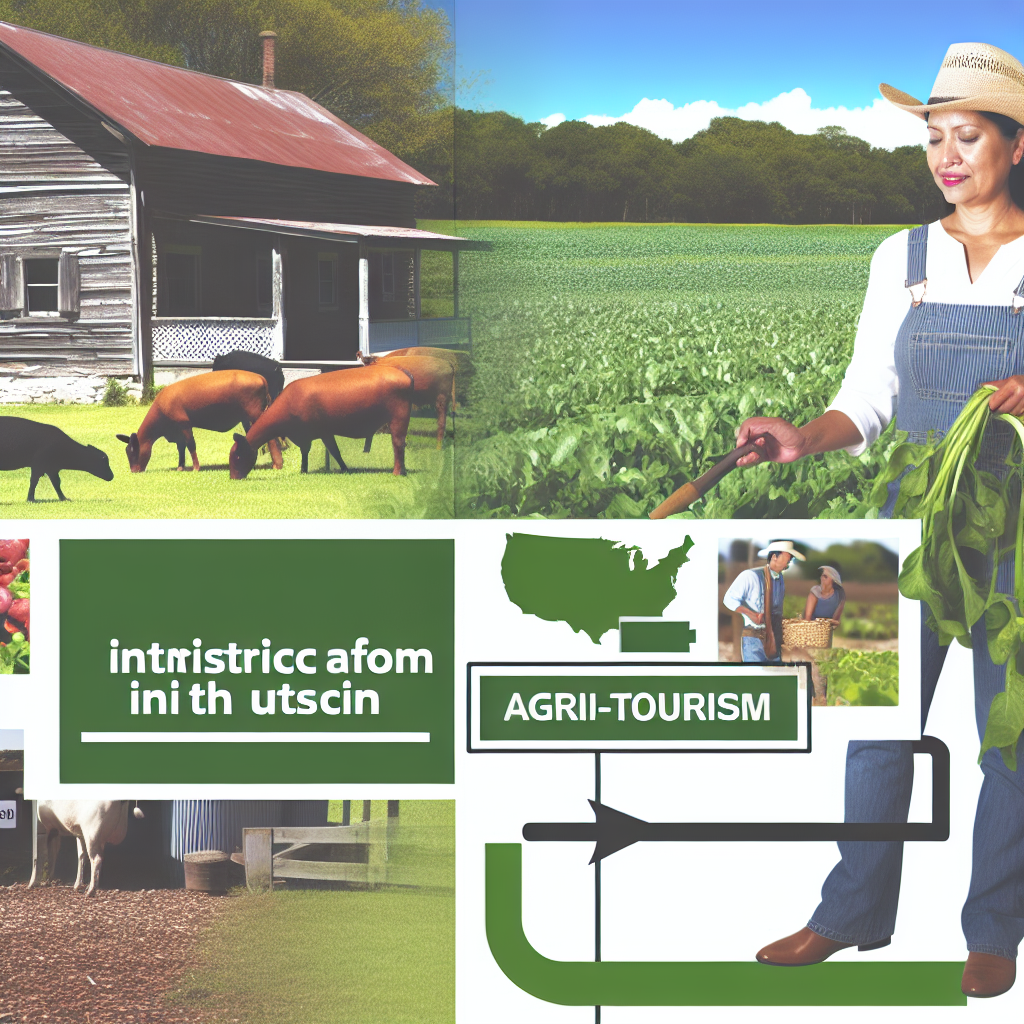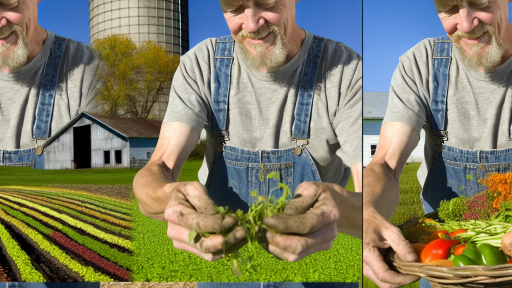Introduction to Agri-Tourism
Definition of Agri-Tourism
Agri-tourism refers to the practice of inviting visitors to experience farm life.
This sector blends agriculture with tourism, creating a unique visitor experience.
Farmers can showcase their land, animals, and agricultural products.
Visitors often enjoy activities like picking fruits or joining farm tours.
This interaction helps people understand farming better.
Importance of Agri-Tourism
Agri-tourism plays a crucial role in supporting local economies.
It creates an additional revenue stream for farmers.
Many farmers face challenges like fluctuating market prices.
By attracting tourists, they can stabilize their income.
Moreover, it encourages sustainable agricultural practices.
Visitors become aware of environmental issues and support eco-friendly farms.
Through agri-tourism, farmers can foster community relationships.
This engagement promotes local traditions and culture.
Understanding farm life helps visitors appreciate food sources.
In turn, this appreciation can lead to increased support for local farms.
Transform Your Agribusiness
Unlock your farm's potential with expert advice tailored to your needs. Get actionable steps that drive real results.
Get StartedAssessing Your Farm’s Resources and Capabilities for Agri-Tourism
Identifying Available Resources
Begin by evaluating the physical attributes of your farm.
Examine the land for its scenic views or unique features.
Consider if you have any historical structures that attract visitors.
Analyze your current production capabilities as well.
Determine what types of crops or livestock you have on site.
This assessment will guide your agri-tourism offerings.
Evaluating Infrastructure
Next, analyze your existing infrastructure.
Identify the condition of buildings, parking, and pathways.
Consider whether you need to upgrade facilities for safety and comfort.
Make sure your farm can accommodate visitors effectively.
If necessary, plan for additional amenities, like restrooms.
Understanding Human Resources
Assess the skills of your current staff.
Evaluate whether your team has hospitality training.
Consider the time and effort required to support agri-tourism activities.
Think about hiring seasonal staff to enhance visitor experiences.
Determine how many employees you need to execute your vision.
Market Analysis
Conduct a market analysis to understand your target audience.
Identify who is most likely to visit your farm.
Look into nearby competitors and what they offer.
Gauge community interest in agri-tourism through surveys.
This information will shape your marketing and operational strategies.
Compliance with Regulations
Understand the legal requirements for operating an agri-tourism business.
Research local zoning laws and health regulations.
Consult with local governing bodies for necessary permits.
Showcase Your Farming Business
Publish your professional farming services profile on our blog for a one-time fee of $200 and reach a dedicated audience of farmers and agribusiness owners.
Publish Your ProfileEnsure that your farm complies with safety standards.
Remain informed about liability insurance options as well.
Identifying Unique Selling Points
Highlight what makes your farm unique compared to others.
Consider special events, tours, or workshops for visitors.
Emphasize any organic or sustainable practices you use.
Promote local produce or artisanal products on site.
This uniqueness can draw more visitors to your farm.
Developing Unique Experiences
Choosing Activities for Visitors
Activities are the heart of agri-tourism.
They create memorable experiences for guests.
Consider hands-on farming experiences.
Workshops on gardening attract many visitors.
Include farm-to-table dining events.
These activities showcase local produce.
Farm tours educate guests about agriculture.
Additionally, offer animal encounters for families.
Attractions to Enhance the Visit
Your farm’s attractions can set it apart.
Consider seasonal festivals to draw crowds.
Offer fruit-picking experiences in summer.
During fall, host corn mazes and pumpkin patches.
These seasonal attractions create repeat visitors.
Integrate educational elements, like nature walks.
Provide insights into local ecosystems and wildlife.
Furthermore, include a gift shop with local products.
Creating a Welcoming Environment
A welcoming environment encourages positive experiences.
Ensure excellent hospitality training for staff.
Friendly interactions enhance visitor satisfaction.
Design spaces for relaxation, like picnic areas.
Good amenities will make your farm family-friendly.
Consider providing accessible restrooms and facilities.
Safety should always be a priority for guests.
Marketing Unique Experiences
Effective marketing attracts visitors to your farm.
Use social media platforms to showcase activities.
Share photos and stories from happy visitors.
Collaborate with local tourism boards.
They can help promote agri-tourism in your area.
Additionally, create appealing packages for groups.
Consider discounts for school trips or reunions.
This can significantly increase visitor numbers.
You Might Also Like: Ethical Farming For Small Farms
Marketing Your Agri-Tourism Offerings
Defining Your Target Audience
Identifying your target audience is critical for effective marketing.
Showcase Your Farming Business
Publish your professional farming services profile on our blog for a one-time fee of $200 and reach a dedicated audience of farmers and agribusiness owners.
Publish Your ProfileConsider who will enjoy your agri-tourism experiences the most.
Families with children often seek engaging outdoor activities.
Couples looking for romantic getaways can also be a key demographic.
Research local visitor statistics to refine your audience further.
Developing a Unique Selling Proposition
Your unique selling proposition (USP) sets you apart from competitors.
Highlight what makes your farm experience special.
Perhaps you offer seasonal festivals or special tours.
Focus on local produce, farm animals, or sustainable practices.
A compelling USP attracts visitors and retains loyal customers.
Creating an Effective Online Presence
In today’s digital age, an online presence is vital.
Start by designing a user-friendly website.
Ensure it showcases your agri-tourism offerings clearly.
Include high-quality images and engaging descriptions.
Additionally, provide easy online booking options.
Utilizing Social Media Platforms
Social media is a powerful tool for marketing agri-tourism.
Create profiles on platforms like Instagram and Facebook.
Share captivating photos of the farm and visitors enjoying activities.
Engage with followers through comments and messages.
Use targeted ads to reach potential customers in specific demographics.
Collaborating with Local Businesses
Collaborations can significantly enhance your visibility.
Partner with local hotels and restaurants for cross-promotions.
Offer package deals that attract more visitors to both businesses.
Attend local events and fairs to promote agri-tourism opportunities.
Networking with community leaders can also increase awareness.
Encouraging Visitor Feedback
Feedback from visitors is invaluable for improvement.
Encourage guests to leave reviews on social media and travel sites.
Respond to reviews to show you value their input.
Consider creating a comment box on-site for suggestions.
This builds trust and helps you enhance future experiences.
See Related Content: Creating Memorable Experiences in Agri-Tourism
Legal and Regulatory Considerations
Permits
Permits are crucial for operating an agri-tourism venture.
Local regulations may vary significantly based on your location.
Start by checking with your local zoning office for required permits.
These may include agricultural zoning permits and land use regulations.
Additionally, you might need special permits for specific activities.
Examples include permits for events, food service, or accommodations.
Always consult with a legal expert to navigate the permit process effectively.
Insurance
Insurance protects your farm and your visitors during activities.
Liability insurance is essential to cover injuries and accidents.
Consider property insurance to protect against damage to structures.
Showcase Your Farming Business
Publish your professional farming services profile on our blog for a one-time fee of $200 and reach a dedicated audience of farmers and agribusiness owners.
Publish Your ProfileYou might also need specific coverage for temporary events and activities.
Speak with an insurance agent who specializes in agri-tourism.
They can help you identify the best coverage options for your needs.
Safety Standards
Safety standards are vital to ensure a safe visitor experience.
Compliance with health and safety regulations is non-negotiable.
This includes ensuring food safety if you provide food services.
Regular maintenance of your facilities can prevent accidents.
Implement clear signage to guide visitors through your property.
Train staff on emergency procedures and visitor engagement techniques.
Regularly review safety protocols and update them as necessary.
Gain More Insights: Organic Farming Tips for Community Supported Agriculture

Building Partnerships
Collaborating with Local Businesses
Partnerships significantly enhance your agri-tourism business model.
Local businesses can provide mutual benefits through collaboration.
Consider forming alliances with nearby restaurants and hotels.
These establishments can promote your farm as a tourist destination.
In exchange, you can supply them with fresh produce or special farm experiences.
Explore opportunities with local artisans as well.
Craftspeople can showcase their goods on your farm during events.
This collaboration enriches the visitor’s experience with local culture.
Ensure to promote these partnerships through joint marketing efforts.
Social media campaigns can highlight these collaborations.
Engaging with Community Organizations
Community organizations often have a wealth of resources and connections.
Reach out to local schools for educational farm tours.
This initiative can spark children’s interest in agriculture.
Additionally, consider partnering with local environmental groups.
They can assist in hosting workshops focused on sustainability.
These events can raise awareness about agricultural practices.
Moreover, community centers can help promote your events.
Join forces for festivals or seasonal markets to attract more visitors.
Fostering Relationships with Tourism Boards
Your local tourism board is a vital partner for promoting your farm.
They often have budgets for marketing agricultural tourism.
Collaborating with them can expand your visibility.
Submit ideas for brochures or events that include your farm.
Engage in tourism trade shows to showcase unique offerings.
Moreover, align your farm’s schedule with local festivals.
This alignment can increase foot traffic to your location.
Consider offering special packages that highlight farm experiences.
Networking with Other Farmers
Building relationships with neighboring farms can be beneficial.
Collaborate on events that showcase multiple farms in the area.
Host a regional agri-tourism event to draw larger crowds.
Showcase Your Farming Business
Publish your professional farming services profile on our blog for a one-time fee of $200 and reach a dedicated audience of farmers and agribusiness owners.
Publish Your ProfileThese events can feature farm tours, tastings, and workshops.
Share resources, such as marketing materials and customer contacts.
Consider forming a cooperative for mutual marketing efforts.
Pooling resources can lead to cost savings and increased visibility.
Furthermore, share tips and best practices to enhance offerings.
See Related Content: Exploring Agri-Tourism: Benefits for Modern Farmers
Enhancing Visitor Experience
Accommodations
Providing comfortable accommodations enhances the visitor experience significantly.
Consider building cozy cabins or setting up glamping tents.
Ensure each accommodation unit offers essential amenities, such as running water and power.
Also, spotlight unique features like historic barns or scenic views.
Warm hospitality will make guests feel welcomed and valued.
Regular feedback from visitors can help refine your offerings.
Amenities
A variety of amenities keeps visitors engaged during their stay.
Offer activities such as farm tours, animal feeding, and workshops.
Include picnic areas where families can enjoy meals together.
Consider creating a small farm shop that sells local products.
Additionally, campsites for outdoor activities can be a great attraction.
Always prioritize cleanliness and safety throughout your facilities.
Customer Service
Outstanding customer service is essential in agri-tourism.
Train staff to offer genuine hospitality and helpful assistance.
Ensure they have thorough knowledge of farm operations and activities.
Friendly staff can provide personalized recommendations to visitors.
Consider implementing an online booking system for convenience.
Promptly address any concerns or special requests that arise.
Gather testimonials to highlight exceptional service experiences.
Evaluating Success: Metrics for Measuring Agri-Tourism Impact and Growth
The Importance of Metrics
Metrics provide valuable insights into agri-tourism success.
They help you track progress over time.
Additionally, metrics allow for data-driven decision-making.
Finally, they help in identifying areas for improvement.
Key Performance Indicators (KPIs)
KPI selection is crucial for evaluating success.
Some common KPIs include visitor numbers and revenue generated.
Moreover, customer satisfaction scores are essential indicators.
Also, tracking social media engagement can provide insights.
Visitor Numbers
Tracking visitor numbers shows how popular your agri-tourism activities are.
Growth in visitor numbers signifies increased interest in your offerings.
Revenue Analysis
Revenue generated from agri-tourism activities demonstrates economic viability.
Analyzing revenue allows you to identify profitable activities.
It is important to track revenue trends over time.
Customer Feedback and Satisfaction
Collecting customer feedback vitalizes your operation.
Surveys and reviews offer insights into visitor experiences.
Showcase Your Farming Business
Publish your professional farming services profile on our blog for a one-time fee of $200 and reach a dedicated audience of farmers and agribusiness owners.
Publish Your ProfileAnalyzing this data helps you enhance customer satisfaction.
Consequently, happier customers often lead to more referrals.
Social Media Engagement
Social media platforms are powerful tools for measuring impact.
A high level of engagement indicates strong interest among potential visitors.
Regularly monitoring likes, shares, and comments provides useful feedback.
Involvement in local online communities can also enhance visibility.
Long-term Growth Indicators
To understand long-term success, assess trends in data over multiple years.
Identify whether visitor numbers and revenue show positive growth.
Also, understand how customer loyalty evolves over time.
Lastly, track collaborations with local businesses and organizations.
Additional Resources
The Opportunity for Agritourism Development in New Jersey
The Contribution of the Farm to Table Concept to the Sustainable …




